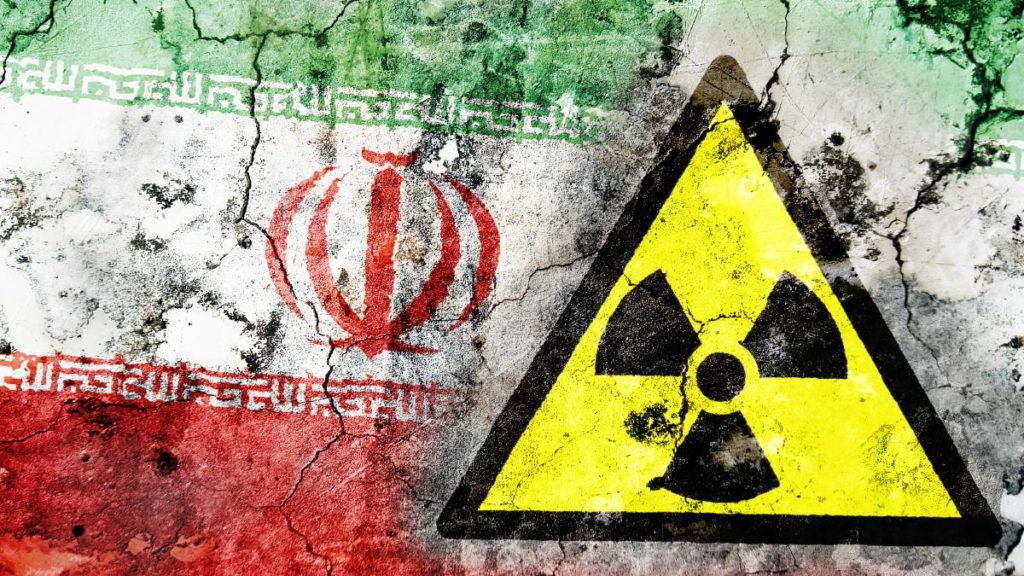IN THE MEDIA
China-Iran deal shows folly of ending UN arms embargo on Iran
August 6, 2020 | Colin Rubenstein

Published in Canberra Times – 6 August 2020
Reports in recent days that Iran and China are on the verge of entering into an economic and security partnership that would vastly expand Chinese presence in Iranian banking, telecommunications, ports, and railways – as well as foster security co-operation – should deeply trouble the Morrison government and all Australians.
It should not surprise given the propensity of aggressive, problematic actors to seek alliances that help them withstand diplomatic pressure to change their problematic behaviours.
China’s interference in Australian affairs, its mishandling of the COVID-19 pandemic and now its unilateral changes to the status quo in Hong Kong are just the latest chapters in Beijing’s chequered foreign policy history.
Iran, however, increasingly poses an imminent threat, given its now routine violations of the 2015 Joint Comprehensive Plan of Action nuclear deal. Each of these violations reduces the time it would take for Iran to produce a nuclear weapon.
The latest International Atomic Energy Agency expert reports (June 5 and 6) and the June 19 Board of Governors’ resolution on Iran simply can’t be ignored. This is because this IAEA resolution, tabled by the European powers and passed in a landslide of 25-2 (with Russia and, here again, China the sole opponents) criticises Iran for violating the Additional Protocol of the Nuclear Non-Proliferation Treaty, not simply the JCPOA, by refusing to allow the agency’s inspectors access to two suspected former nuclear research and development sites.
As US Assistant Secretary of State for International Security and Nonproliferation Christopher Ford told reporters in a briefing: “It is the first time ever, by any country, anywhere, that a government has rejected and refused to comply with its obligations under the IAEA’s Additional Protocol.”
In recent months, Iran has exceeded limits on both the level of uranium enrichment and the size of its stockpile, activated faster centrifuges than those allowed to it under the deal, and resumed enrichment at its underground bunker in Fordow.
The IAEA vote also marks the first time the UK, France and Germany have fully backed Washington on a major policy regarding Iran’s nuclear program since May 2018. That’s when the US withdrew from the JCPOA, which it saw as “defective at its core”, and reimposed sanctions in order to pressure Iran to renegotiate a better, enforceable deal that would permanently block it from building nuclear weapons.
Some have, wrongly and dangerously, been willing to excuse Iran’s open violation of the JCPOA as a response to the US withdrawal. These excuses should now be abandoned in the face of Iran’s violations of the NPT – obviously illegal regardless of how one feels about the JCPOA.
In any case, five years on, the dangerous vulnerabilities in the JCPOA should be evident to all: the sunset provisions that leave Iran only five years from having all restrictions on its uranium enrichment lifted; inadequate weapons inspections; and unrestricted development of advanced centrifuges as well as long-range ballistic missiles tailor-made for nuclear warheads. It also ensured Iran could receive maximum economic benefit without sacrificing either its nuclear weapons ambitions or moderating its behaviour as a regional destabiliser through its proxies and clients such as Hezbollah and Hamas.
In recent months, Iran has exceeded limits on both the permitted level of uranium enrichment and the size of its stockpile, activated faster centrifuges than those allowed to it under the deal, and resumed enrichment at its underground bunker in Fordow.
Yet, in a move that defies all logic, the JCPOA nuclear deal unconditionally bestows upon Iran an end to the longstanding conventional arms embargo on that country from October 18 of this year.
It is clear China is now eager to exploit this economic and strategic opportunity to become the major military partner of Tehran through arms sales.
Whatever motivated this ill-conceived concession to the Iranians in 2015 – at a time when an Australian frigate has recently returned from protecting commercial shipping vessels from Iranian attacks in the Strait of Hormuz, and Saudi Arabia is still feeling the effects of last year’s Iranian drone and missile attack on its largest oil field, lifting the embargo under current circumstances would be an own goal of epic proportions.
This is true whether looking at it from the perspective of Iranian imports that would allow it to modernise its military, involved in considerable regional aggression, or exports that would empower its terrorist proxies and clients.
Unfortunately, US efforts to extend the embargo through the UN Security Council appear unlikely to succeed due to resistance from China and Russia – which is also keen to sell Tehran arms.
Yet should the bid to stop the lifting of the embargo fail in the Security Council, the US is threatening to unilaterally activate “snapback” sanctions on Iran, as permitted under the provisions of the JCPOA and UNSC Resolution 2231.
There are genuine risks in such a course, but to allow the lifting of the arms embargo to proceed would be riskier still.
In a year of unprecedented challenges for governments around the world, the Iranian threat, both nuclear and conventional, must remain a priority.
Moreover, as Beijing and Tehran draw closer together, Australia should draw the necessary conclusions and adapt its policy towards both countries accordingly.
Australia, together with its Western partners, should lend all diplomatic support to US efforts to extend the arms embargo on Iran and, given the latest IAEA findings, look for ways to increase pressure on Iran over its dangerous nuclear program and the threat it represents to international peace and security.
Dr. Colin Rubenstein is executive director of the Australia/Israel & Jewish Affairs Council and previously taught Middle East politics for many years.





